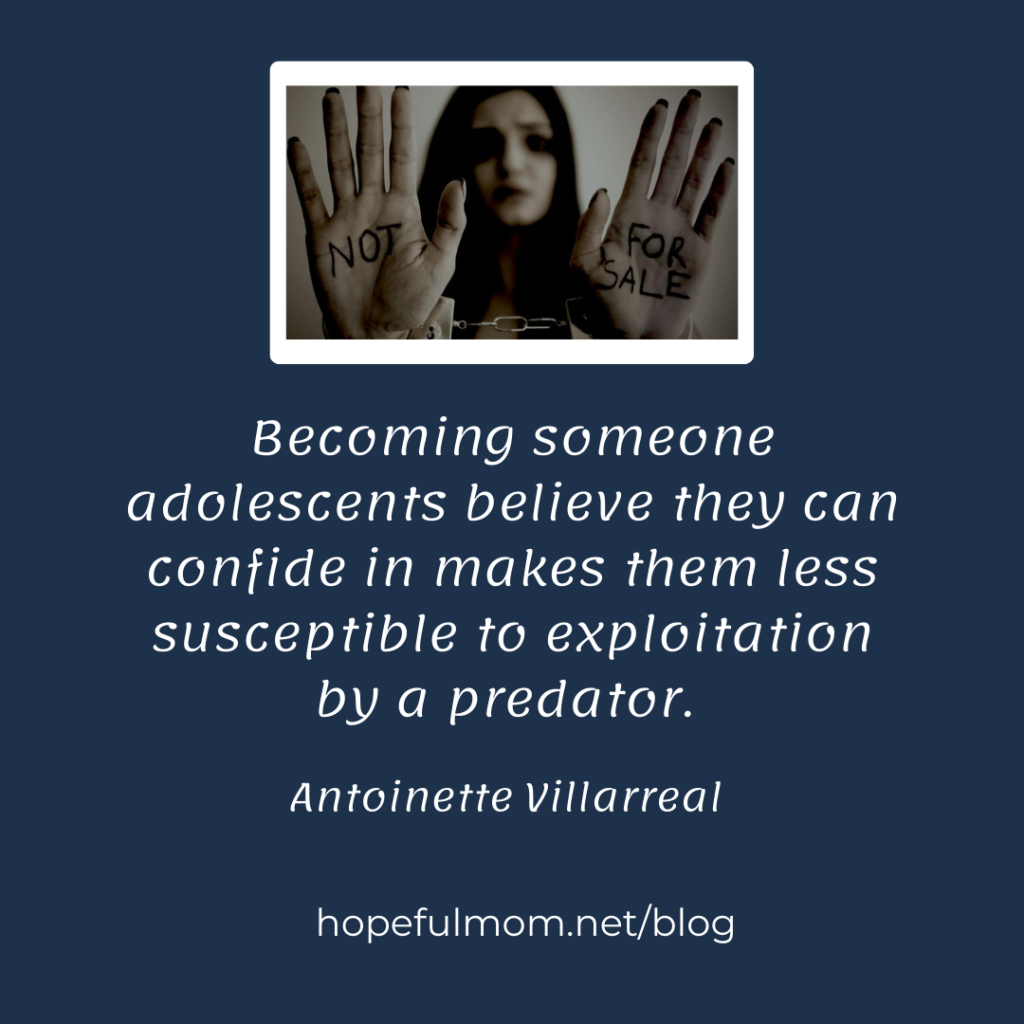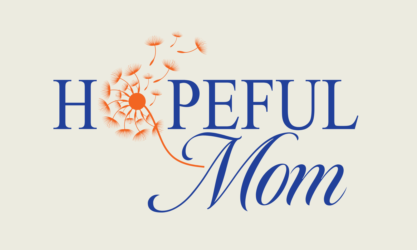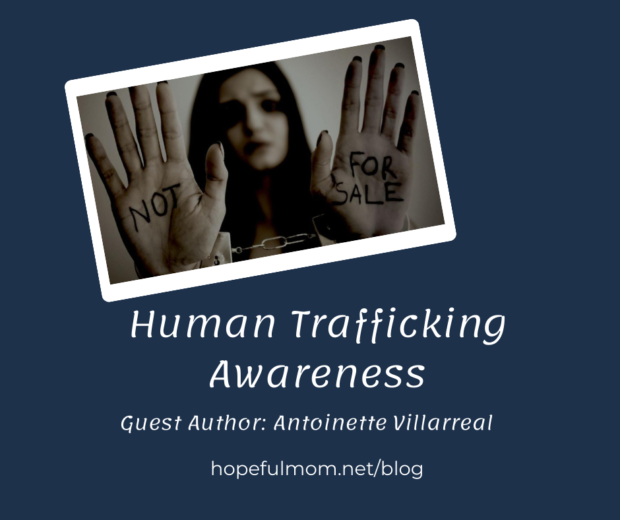I’m thrilled to introduce Antoinette Villarreal, creator and host of the InHumane Podcast, HotPie Media, LLC. Antoinette is dynamic and passionate about protecting children from human trafficking. She and I talked on her podcast, and I was inspired and motivated by her zeal. I love her message and vibrant personality. I’m grateful she stopped by during Human Trafficking Awareness Month to chat with us about this tragedy happening in our own backyards.
What would you do to protect your loved ones from a predator? Are there any limits? How would you prepare you and yours to prevent being a target to these monsters? How do we prepare our children and other young people from being forced, coerced, or lured by fraudulent promises?
“Stranger Danger! Don’t trust men in vans! Don’t take candy from strangers.”
Sound familiar?
These are words and phrases many adults remember growing up and now teach it to their own loved ones. These are universal tactics communities use to keep their families “safe” from predators.
For the protection of everyone’s family, this WILL SIMPLY NOT WORK! This thought process will NOT keep your family, friends, or community safe.
Instead, we need to look much closer, in a more intimate place…in our very own lives and households. The anti-human trafficking movement receives many responses to looking within. For example, “It’s absurd to look internally. I trust my surroundings and the people in them.”
If society believes that only strangers and/or foreign forces can be the cause of human trafficking, then we have a much larger hill to climb.
The question we need to ask ourselves is, “Who has access to our children?”
Looking within our circles and our surroundings is the greatest defense we have as a whole to prevent human trafficking. This includes thinking critically about our social media, limiting in person and online access to our children and youth, our children’s friends and our family, coaches, teachers, etc.
Children and young people are vulnerable and haven’t fully developed their prefrontal lobe, the area of the brain responsible for decision making. As a result, they are vulnerable prey to force, fraud, and coercion.
No matter how intelligent our children are, they need our guidance and constant conversation about what human trafficking can and does look like in their world. When we don’t start and continue these conversations about prevention, we allow the media, pornography, peers, television, video games (including the ones labeled “child friendly”), music and everything else in pop culture dictate the narrative.
To be honest and fair, even with all of this ongoing conversation, pop culture will continue to teach our youth lies about sex, self-image, self-expression, love, confidence, security, etc. Someone not familiar with human trafficking isn’t able to discern truth vs lie. How do we dispel this continuous attack on the innocent?
First, they are never too young to have conversations. We just need to use appropriate language for their age group, so the comprehension is clear and applicable. Predators start grooming youth at any age, however, the younger the better. Five-year-olds are playing Roblox, yet children are stating this is where people online were also talking about sex and porn. All the while, parents and their youth believe they are playing with their peers.
You can start having these talks as early as three years old. The National Society for the Prevention of Cruelty to Children from the UK has a great resource named PANTS with PANTOSAURUS which helps children understand that their body belongs to them, and they should tell someone they trust if anything makes them feel upset or worried. These resources are available for both parents and children.

Becoming someone adolescents believe they can confide in makes them less susceptible to being exploited by a predator, who would manipulate that trust to put them in danger. As a result, this helps them to fight off predators. Human traffickers will no longer see them as easy prey: easy to manipulate, easy to groom, easy to coerce, or easy to force. Instead, young people are prepared even when they are vulnerable; they can internalize and fight back when someone is exposing them to something that makes them feel uncomfortable. These courageous conversations will empower them to say no when their parents or guardians are not around.
When it comes to preteens, teenagers, and young adults, we must first build trust with them in all areas of their life. Hear and truly listen to them with no other agenda. Ask them questions about people’s behavior and how they feel about it. What does a healthy relationship look like to them? What are some positive thoughts you have about the person or situation? What negative thoughts do you have? The goal is to help them navigate through their thoughts and feelings. Instead of keeping these thoughts a secret, which is never healthy for their mental, spiritual and physical self, these young people are able to explore and articulate what they want for their life.
Parents, please equip yourself with building trust with your young people and learn more about what human trafficking looks like in our world today. It is a $150 billion dollar complex business that doesn’t care how much money your parents make, what side of town you live on, or the color of your skin. January is Human Trafficking Awareness month and the time to join the fight against human trafficking. Learn from the anti-trafficking movement and other people who have related causes like Hopeful Mom. Listen to the InHumane Podcast where we peel back the complexity and inform the public of what’s going on in the world of human trafficking and how to prevent and combat this epidemic. It is our job to protect our young people from predators near and far.
Remember to share this post with your friends. Doing so may help save a child from an online predator. Subscribe below to receive update on new articles and information on my upcoming book. You will also get a FREE Download.
About the author

Antoinette Villarreal
For over a decade, Antoinette has been fighting to eradicate human trafficking locally, nationally & internationally. As a brain coach, she works side by side with survivors and individuals to lead their life authentically with self love & sustainability while conquering goals. Antoinette is an educator and learning development expert for children and adults within the public school system, nonprofits and private sector. She has brought human trafficking awareness and trainings to the forefront of faith-based groups, child advocacy entities and within the private sector. Antoinette has helped change legislation for combatting human trafficking and child advocacy groups by developing trainings, collecting hundreds of signatures and marching on Texas’ State Capitol to improve laws for children and victims of human trafficking.
Antoinette curates and hosts the InHumane Podcast to bring the people of the world together to prevent and fight against human trafficking for all.
Antoinette maximizes her neuroscience & trauma-informed training to design learning models and curricula across industries including child advocacy, juvenile justice, refugee and education programs. As a leadership and development consultant, Antoinette coaches executives and their organization to improve the advancement of their human capital and business strategy.



Thanks for getting the word out on these evil predators. It’s eye-opening.
So grateful for Antoinette’s knowledge. Thankfully, we are starting to understand more and help the vulnerable say no to HT.